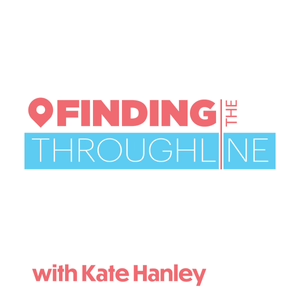![Activist #MMT - podcast - Full audio: John Harvey's Contending Perspectives: Chapter 2: Economics as a scientific discipline [EDITED]](https://storage.googleapis.com/goodpods-images-bucket/episode_images/d439381799136824e400e95f322714965470dbec31e98e28c5d5acb8bf4cbeb2.avif)
Full audio: John Harvey's Contending Perspectives: Chapter 2: Economics as a scientific discipline [EDITED]
01/08/23 • 75 min
Here's the original video from where this audio came.
Here's a list of links to John reading every chapter (released so far) in his 2021 book Contending Perspectives.
Note the original video is unedited, but the audio has been edited to eliminate obvious mistakes, coughs, interruptions, and etc.
Audio chaptersUse the below timestamps to navigate to each major section and occurrence in this section:
- 1:35 - Page 8: Chapter 2: Economics as a scientific discipline
- 3:25 - Page 8: Section: What is science?
- 4:40 - Page 9
- 10:03 - Page 10: A realistic version of science
- 17:39 - Page 13
- 30:13 - Page 17: Economics: Training and apprenticeship
- 44:01 - Page 22
- 58:38 - Page 27: Economics: Schools of thought
- 1:06:32 - Page 30: Economics: Primary and secondary standards of behavior
- 1:09:30 - Summary of table 2.1 on 32 (then skipping page 31, paragraph 2 through page 34, paragraph 2 – all of which is covered in future chapters)
- 1:10:43 - Page 34, paragraph 2
- 1:13:10 - Page 35: Conclusions
- 1:14:55 - Final comments
Here's the original video from where this audio came.
Here's a list of links to John reading every chapter (released so far) in his 2021 book Contending Perspectives.
Note the original video is unedited, but the audio has been edited to eliminate obvious mistakes, coughs, interruptions, and etc.
Audio chaptersUse the below timestamps to navigate to each major section and occurrence in this section:
- 1:35 - Page 8: Chapter 2: Economics as a scientific discipline
- 3:25 - Page 8: Section: What is science?
- 4:40 - Page 9
- 10:03 - Page 10: A realistic version of science
- 17:39 - Page 13
- 30:13 - Page 17: Economics: Training and apprenticeship
- 44:01 - Page 22
- 58:38 - Page 27: Economics: Schools of thought
- 1:06:32 - Page 30: Economics: Primary and secondary standards of behavior
- 1:09:30 - Summary of table 2.1 on 32 (then skipping page 31, paragraph 2 through page 34, paragraph 2 – all of which is covered in future chapters)
- 1:10:43 - Page 34, paragraph 2
- 1:13:10 - Page 35: Conclusions
- 1:14:55 - Final comments
Previous Episode

Ep137: Steve Kelsey: Trans-jurisdictional caring
Welcome to episode 137 of activist #MMT. Today I talk with Steve Kelsey, about what money and money issuance, and our entire money system, should and could be, if we could start over and design it from scratch. You'll find two of his papers linked below (in the Resources section). Before that, we discuss Steve's Twitter thread, which is one of the most viral MMT tweet threads of all time more than 3000 retweets and nearly 7000 likes.
The topic of his thread is the big lies told by former UK Prime Minister Margaret Thatcher. The first big lie is "TINA" which stands for "there is no alternative." This is how those already on top tell the rest to sit down, shut up, and take what you can get. The second big lie is "there is no government money, there is only taxpayer money." This is a statement by those who have taken control of government that they will do whatever it takes to prevent its powers from being used for regular people. This is true even for things desperately needed and obviously within its capabilities. The third big lie is that the government is nothing more than a gigantic household or company, and so must balance its spending with revenue. This is basically the justification used by those in power to deceive the rest into thinking that deliberate mass neglect is "unfortunate, but necessary."
The fourth big lie, despite not being included in Steve's Twitter thread, is most closely related to today's conversation. That is, "there's no such thing as society, there's only household individuals and families." This is just another version of, "you're on your own. We could help you (and we're the only institution that can help you!) but we're not gonna do that. So, good luck!"
If healthcare had no cost, then rising healthcare costs, obscene pharmaceutical prices, and medical debt, would become an impossibility. If education had no cost, then student debt – and the faux concern that canceling it is regressive and will cause terrible inflation – would also be impossible. Finally, if everyone who wanted a job, could have a job, then "the sack" could no longer be used as a tool to discipline workers.
Much of these things boil down to what Michael Kalecki describes in his 1942 paper, The Political Aspects of Full Employment: the rich pay legislators to not legislate. When the government doesn't govern, who's left to control our lives but those who pay legislators the most? Those on top cannot remain on top unless they exploit the rest. They will not stop until they are stopped.
Needless to say, overhauling our current system is a daunting task. But what if we could? Even if unlikely, you can't achieve a goal if you don't first dream and design it. Today's conversation with Steve is a thought experiment to dream about what a new system could be.
Steve's idea is to replace national money issuance with community-based money issuance. Importantly, these communities don't have to be limited to small geographical regions. They could be trans-jurisdictional, meaning they could span multiple national borders, even dispersed across the world, coordinated by tools such as the internet. Something that spans borders cannot be conquered without the cooperation of all the nations in which the community exists. One historical example of mass collective action is the hole in the ozone layer, which took the cooperation of nations from around the world to reduce chlorofluorocarbons (CFCs) and greatly reduce the hole.
We currently have a society where the vast majority are not cared for. This drives us apart and into the arms of precisely those who pay our legislators to not care for us. Let's replace that with caring for each other, which would drive us together, making it possible to ignore those who personally benefit from mass exploitation and neglect.
There's much more to Steve's idea but I'll leave it there. As a reminder, you'll find two of his papers linked in the show notes.
Sadly, Steve's mother passed away a week before this episode was released. Here is Steve's tribute to her on Twitter.
And now, onto my conversation with Steve Kelsey. Enjoy.
Resources- Steve Kelsey's Physical Money Propositions v1.5
- Steve Kelsey's Transactional Logic v3.0
- Milton Friedman on inflation
Next Episode
![undefined - Ep140 [1/3]: Scott Fullwiler: Modern Central Bank Operations: The General Principles [principles 1-2 of 10]](https://storage.googleapis.com/goodpods-images-bucket/episode_images/cfc1cd48a72bdac2a4043b4fc83865a91a3e4bf0a8255cfedb80b93ced92a110.avif)
Ep140 [1/3]: Scott Fullwiler: Modern Central Bank Operations: The General Principles [principles 1-2 of 10]
Welcome to episode 140 of Activist #MMT. Today I talk with Scott Fullwiler on his 2008 paper, Modern Central Bank Operations: The General Principles. Today's part one of a three-part conversation. Today in part one we discuss some generic but related topics, and then principles one and two. Next time in part two we cover principles three to six, and then in part three, principles seven to ten. My full and detailed question and summary list can be found at the bottom of these show notes (look below!). Also, be sure to check out the list of audio chapters to find precisely where each principle, and otherwise, can be found.
(Here are links to parts two and three. A list of the audio chapters in this episode can be found right below the resources section in this post.)
Today's principles one and two.
Principle one is that reserves can only be used for two purposes: Settling payments between banks, and meeting reserve requirements. (There's actually a third purpose, which is it's the only thing that can ultimately settle tax obligations to the state.) Knowing these are its only possible uses, when you hear, for example, that more reserves somehow increase a bank's liquidity, and that this in turn encourages banks to lend more to customers, which then in turn increases economic activity in general... you know they're wrong. The same is true with the reverse: that less reserves somehow discourages lending and reduces economic activity.
Principal two says that, because the central bank is the only entity capable of creating and deleting reserves, it has "a fundamental, legal obligation to promote the smooth functioning of the national payment system." Without a functioning payment system, society would, without exaggeration, break down. If a bank can't settle its payments with another bank, then everyone expecting a payment won't receive it, and everyone expecting payment from them also won't receive it. And on and on.
Trillions of dollars go through the federal reserve system every day. More goes through this system in the United States each week then an entire year's worth of GDP. Not to mention, the US payment system is central to most of the payments for the entire world, and so the US payment system breaking down would have global implications.
(As a brief side note, this latter point is leveraged by the United States to surveil and manipulate most nations around the globe. One example is how, when Iraq threaten to eject all US troops, the US responded by threatening to forbid Iraq from using its payment system, thereby potentially disconnecting it from the entire world. This is the big story that lurks behind the so-called petrodollar. Here is a fascinating video on this by the Wall Street Journal.)
And now, onto my conversation with Scott Fullwiler. Enjoy.
Resources- Daily Treasury statement (original location)
- 2017 paper by Rohan Grey, Banking in a Digital Fiat Currency Regime
- 2015 paper by Perry Mehrling, Elasticity and Discipline in the Global Swap Network
- 2000 paper by Stephanie Bell (now Kelton), Do Taxes and Bonds Finance Government Spending?
- The updated version of this paper, from 2009, consolidates the original ten principles into around seven, and then adds some more. It's much longer, and is a chapter in the book (as co-edited by Scott) called Institutional Analysis and Praxis: The Social Fabric Matrix Approach.
- 5:06 - Hellos
- 6:55 - My boys
- 8:49 - Our meeting, and Twitter
- 11:27 - The plan
- 12:17 - The Federal Reserve and the banks are in charge of the government (not)
- 16:58 - How do you know what you know?
- 19:52 - How the paper came to be
- 23:08 - What would change about your paper if you could write it again?
- 25:25 - The horizontalists versus structuralists debate (plus circuitists and chartalism)
- 27:54 - MMT agrees more with horizontalists, but Randy Wray had one unexpect...
If you like this episode you’ll love
Episode Comments
Generate a badge
Get a badge for your website that links back to this episode
<a href="https://goodpods.com/podcasts/activist-mmt-podcast-392431/full-audio-john-harveys-contending-perspectives-chapter-2-economics-as-55472855"> <img src="https://storage.googleapis.com/goodpods-images-bucket/badges/generic-badge-1.svg" alt="listen to full audio: john harvey's contending perspectives: chapter 2: economics as a scientific discipline [edited] on goodpods" style="width: 225px" /> </a>
Copy




